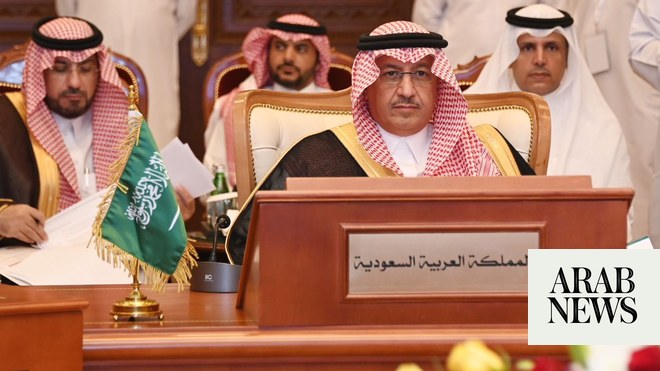Saudi education minister highlights Kingdom’s efforts to support G20 objectives on global challenges
Saudi education minister highlights Kingdom's efforts to support G20 ... Arab News


Kingdom of Saudi Arabia’s Participation in G20 2023 Summit

Introduction
The Kingdom of Saudi Arabia’s participation in the G20 2023 summit is of significant importance as it is a prominent and important international forum with the world’s biggest economies as its members, according to Saudi Minister of Education Yousef bin Abdullah Al-Benyan.
Supporting G20 Objectives
Al-Benyan commended the efforts made by the Kingdom, under the leadership of King Salman and Crown Prince Mohammed bin Salman, to support the achievement of the G20’s objectives in addressing global challenges.
G20 Achievements and Priorities
In a statement to the Saudi Press Agency, Al-Benyan highlighted the successes achieved and the priorities adopted through the group’s work under the Indian presidency. Issues addressed by the G20 included:
- Digital infrastructure
- Climate change mitigation
- Global food security
- Clean energy
- Women’s empowerment
- Macroeconomy
- Accelerating the achievement of the 2030 sustainable development goals
Efforts of the G20 Education Working Group
Al-Benyan praised the efforts of the G20 education working group this year, which included:
- Meetings and discussions about promoting basic digital and reading skills in the context of hybrid learning
- Ensuring the comprehensiveness and quality of technology-based education at all levels of education
- Capacity building
- Promoting lifelong learning opportunities
- Promoting research and innovation
- Activating cooperation between higher education and scientific research institutions in the G20 countries
Education as a Main Agenda
Al-Benyan stressed the importance of keeping education on the G20’s main agenda. He stated, “Significant attention was given to education during the Kingdom’s presidency of the G20. Saudi Arabia brought back the education working group as a main working group in 2020 after it was absent in 2019. This move stemmed from the Kingdom’s belief in the importance of education as a basic human right, a main driver to achieving the sustainable development goals and a foundation for building human capabilities and promoting them.”
He further emphasized that the Kingdom’s education sector, which is one of the main pillars of the Kingdom’s Vision 2030, receives unlimited support from the government through comprehensive development of the education system and adoption of educational policies, programs, and projects in various fields and at all levels. This contributes to developing citizens’ skills and raising generations that possess great knowledge and significant skills, while also being able to compete internationally. The Kingdom’s Vision has set ambitious and comprehensive goals that support the educational process and make all opportunities available, ensuring just and fair education for all and supporting efforts that aim at teaching people with disabilities and creating a proper and effective education environment to achieve comprehensive and sustainable economic development.
International Cooperation and Partnerships
Al-Benyan highlighted the importance of international cooperation and partnerships between the G20 member states and the rest of the world, especially when faced with global crises. He emphasized the importance of exchanging knowledge and best practices in education, promoting means of future cooperation to study the impact of disasters and crises, as well as investing in innovation, entrepreneurship, and global research.
He stressed the benefits of joint work in developing modern international trends and policies, which consider education as a main driver of development and a basic right for all, to ensure a sustainable future for all.
SDGs, Targets, and Indicators in the Article
1. Which SDGs are addressed or connected to the issues highlighted in the article?
- SDG 4: Quality Education
- SDG 5: Gender Equality
- SDG 7: Affordable and Clean Energy
- SDG 8: Decent Work and Economic Growth
- SDG 9: Industry, Innovation, and Infrastructure
- SDG 13: Climate Action
- SDG 17: Partnerships for the Goals
The article discusses the Kingdom’s participation in the G20 summit and highlights various issues addressed by the G20, including education, women’s empowerment, clean energy, and sustainable development goals. These issues are directly connected to the Sustainable Development Goals mentioned above.
2. What specific targets under those SDGs can be identified based on the article’s content?
- SDG 4.7: By 2030, ensure that all learners acquire the knowledge and skills needed to promote sustainable development, including among others through education for sustainable development and sustainable lifestyles.
- SDG 5.5: Ensure women’s full and effective participation and equal opportunities for leadership at all levels of decision-making in political, economic, and public life.
- SDG 7.2: By 2030, increase substantially the share of renewable energy in the global energy mix.
- SDG 8.2: Achieve higher levels of economic productivity through diversification, technological upgrading, and innovation.
- SDG 9.5: Enhance scientific research, upgrade the technological capabilities of industrial sectors in all countries, in particular developing countries.
- SDG 13.3: Improve education, awareness-raising, and human and institutional capacity on climate change mitigation, adaptation, impact reduction, and early warning.
- SDG 17.16: Enhance the global partnership for sustainable development, complemented by multi-stakeholder partnerships that mobilize and share knowledge, expertise, technology, and financial resources.
These targets are relevant to the issues discussed in the article, such as promoting sustainable development through education, empowering women in decision-making roles, increasing renewable energy usage, fostering economic growth through innovation, enhancing scientific research capabilities, addressing climate change, and promoting global partnerships.
3. Are there any indicators mentioned or implied in the article that can be used to measure progress towards the identified targets?
- Indicator for SDG 4.7: Proportion of students achieving proficiency in sustainable development literacy.
- Indicator for SDG 5.5: Proportion of seats held by women in national parliaments and local governments.
- Indicator for SDG 7.2: Renewable energy share in the total final energy consumption.
- Indicator for SDG 8.2: Level of technological adoption and innovation in industries.
- Indicator for SDG 9.5: Research and development expenditure as a proportion of GDP.
- Indicator for SDG 13.3: Number of countries that have integrated mitigation, adaptation, impact reduction, and early warning into primary, secondary, and tertiary curricula.
- Indicator for SDG 17.16: Number of countries reporting progress in multi-stakeholder development effectiveness monitoring frameworks.
These indicators can be used to measure progress towards the identified targets, providing quantitative data on various aspects such as literacy in sustainable development, women’s representation in decision-making positions, renewable energy consumption, technological adoption, research and development investment, climate change integration in education, and effectiveness of multi-stakeholder partnerships.
SDGs, Targets, and Indicators Table
| SDGs | Targets | Indicators |
|---|---|---|
| SDG 4: Quality Education | 4.7: By 2030, ensure that all learners acquire the knowledge and skills needed to promote sustainable development, including among others through education for sustainable development and sustainable lifestyles. | Proportion of students achieving proficiency in sustainable development literacy. |
| SDG 5: Gender Equality | 5.5: Ensure women’s full and effective participation and equal opportunities for leadership at all levels of decision-making in political, economic, and public life. | Proportion of seats held by women in national parliaments and local governments. |
| SDG 7: Affordable and Clean Energy | 7.2: By 2030, increase substantially the share of renewable energy in the global energy mix. | Renewable energy share in the total final energy consumption. |
| SDG 8: Decent Work and Economic Growth | 8.2: Achieve higher levels of economic productivity through diversification, technological upgrading, and innovation. | Level of technological adoption and innovation in industries. |
| SDG 9: Industry, Innovation, and Infrastructure | 9.5: Enhance scientific research, upgrade the technological capabilities of industrial sectors in all countries, in particular developing countries. | Research and development expenditure as a proportion of GDP. |
| SDG 13: Climate Action | 13.3: Improve education, awareness-raising, and human and institutional capacity on climate change mitigation, adaptation, impact reduction, and early warning. | Number of countries that have integrated mitigation, adaptation, impact reduction, and early warning into primary, secondary, and tertiary curricula. |
| SDG 17: Partnerships for the Goals | 17.16: Enhance the global partnership for sustainable development, complemented by multi-stakeholder partnerships that mobilize and share knowledge, expertise, technology, and financial resources. | Number of countries reporting progress in multi-stakeholder development effectiveness monitoring frameworks. |
Behold! This splendid article springs forth from the wellspring of knowledge, shaped by a wondrous proprietary AI technology that delved into a vast ocean of data, illuminating the path towards the Sustainable Development Goals. Remember that all rights are reserved by SDG Investors LLC, empowering us to champion progress together.
Source: arabnews.com

Join us, as fellow seekers of change, on a transformative journey at https://sdgtalks.ai/welcome, where you can become a member and actively contribute to shaping a brighter future.







